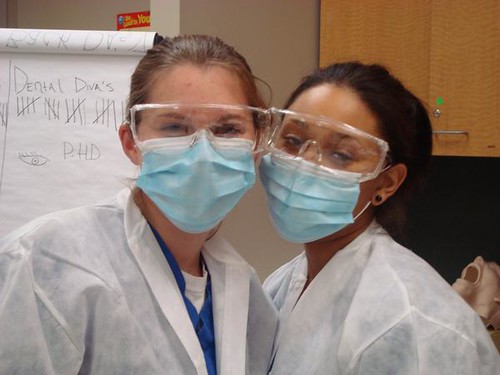There is a great diversity of opinion about the wearing of masks for protection against Covid-19 infection. Sometimes, the opinions are allegedly supported by studies and expertise. In other cases, they seem to be little more than the result of a game of "telephone," conducted over the Internet and social media. The discussion is much politicized, and brings in issues going far beyond the efficacy of masks in slowing the spread of a virus. People with claimed relevant expertise have weighed in on various sides of the topic, each with their arguments, each with information presented as fact. A lot of the views seem to be springing from bias - confirmation and disconfirmation - and in general motivated reasoning. It is clear that motivated reasoning, beliefs and values, determine how we evaluate evidence.
I also have my biases, and these are towards the wearing of masks as a reasonable and somewhat effective infection control measure and risk management measure. I cite a meta-analysis published in the Lancet which I find reasonably convincing, although the statistical techniques are far more advanced than any that I have ever studied. It can be found here at Physical distancing, face masks, and eye protection to prevent person-to-person transmission of SARS-cov-2 and COVID-19: a systematic review and meta-analysis.
I also refer you to a presentation of the UCSF School of Medicine by three specialists in disease control speaking on infection control. It can be found here at Covid-19: How the Virus Gets in and How to Block It: Aerosols, Droplets, Masks, Face Shields, & More.
You can undoubtedly locate contrary opinions with ease. These may or may not be sound. When opinions differ, and contradict one and other, at best one can be correct.
On the issue of masks for infection control and Covid-19 there are factors ranging far beyond the medical case. Cultural, social and emotional thinking colour the opinions that people hold.
Here are some of the issues that I feel might be important. There are undoubtedly other aspects to this that I have not covered but I think this is a good set for thinking about the issues.
Disagreement about the infectivity and virulence of Covid 19 are rampant in various communities. Your belief that the virus is mild or it is only those with co-morbidities who suffer will influence the way you think about masks. If you believe that it is a very mild infection and that you probably won't be infected, you will certainly not see the wisdom of wearing masks.
The effectiveness of mask wearing is called into doubt by some people and by some studies. Although I believe the evidence shows that it is of value in controlling the spread of Covid-19, both infectivity and viral load, all evidence is subject to interpretation. All evidence has a possibility of being incorrect. All findings are underdetermined.
A person's attitudes towards personal freedom and control by the state will affect their view of the wisdom and the appropriateness of wearing masks. This seems to trump any notion that the masks might be useful for controlling infection. I strongly suspect that those who are concerned with personal freedom are also prone to denigrate the infectivity and virulence of the virus and to also downplay the effectiveness of mask wearing. This is confirmation bias at work.
The degree of one's concern for others as opposed to concern for the self may well play a role in attitudes towards the wearing of masks. If you're someone with low empathy, someone who basically feels it's every man for himself, then you may well be biased toward saying masks are ineffective or that masks should not be worn; its not the function of the state to mandate them.
The identification with political factions and shared viewpoints about the advisability of mask wearing will bias those holding certain views. In general people on the right tend to be more anti-mask than people in the left but it is not as clear-cut as all of that.
You may have a belief that masks have harmful social consequences because it is essential that we be able to see others face in order to function smoothly in society. Of course, there are no cultures where masks are routinely worn, are there?
You may have a belief that masks have harmful medical consequences. For instance you may believe that masks do not allow the adequate intake of oxygen and the exhalation of carbon dioxide. There are studies on both sides of this issue but in fact people do wear masks in society and in medicine for extended periods of time; there do not seem to routine and significant reported negative consequences.
In addition there is a school of thought that by wearing a mask you do not allow the virus to escape and it will recirculate in your own body and increase your viral load. I have to admit this makes very little sense to me.
(Note: You can view every article as one long page if you sign up as an Advocate Member, or higher).





